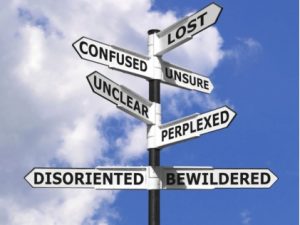 One of the stories in my book, Could it Be Dementia: Losing Your Mind Doesn’t Mean Losing Your Soul, is about a man that Dr Oliver Sacks, the eloquent neurologist helped care for. It’s about the power of connection, soul to soul.
One of the stories in my book, Could it Be Dementia: Losing Your Mind Doesn’t Mean Losing Your Soul, is about a man that Dr Oliver Sacks, the eloquent neurologist helped care for. It’s about the power of connection, soul to soul.
Dr Sacks tells of Jimmie, a man who had deep dementia with dense amnaesia and could not remember isolated items for more than a few seconds. It was one of the severest, most devastating cases of Korsakov’s syndrome Dr Sacks had observed. Korsakoff’s syndrome is a type of dementia caused by chronic alcoholism.
Everyone concerned with his care had an overwhelming sense of something missing, and Dr. Sacks wondered if he had lost the essence of himself, if he was a spiritual casualty, a ‘lost soul’.
 He put this to one of the Sisters, who suggested he observe Jimmie during a service in the hospital chapel. There he saw him worshipping, ‘no longer at the mercy of a faulty and fallible mechanism – that of meaningless sequences and memory traces – absorbed in an act of his whole being, which carried feeling and meaning in an organic continuity and unity, a continuity and unity so seamless it could not permit any break’.
He put this to one of the Sisters, who suggested he observe Jimmie during a service in the hospital chapel. There he saw him worshipping, ‘no longer at the mercy of a faulty and fallible mechanism – that of meaningless sequences and memory traces – absorbed in an act of his whole being, which carried feeling and meaning in an organic continuity and unity, a continuity and unity so seamless it could not permit any break’.
Jimmie had led a chaotic and increasingly isolated life, and for him that sense of continuity and unity came late. But better late than never. For me Jimmie’s story is a lovely illustration of the Lord’s tenacity.
God made us for unity and continuity, with Him and with each other. ‘Not good if detached’ is as true of our souls as it is of the controls of the bridge of our ship. A growing body of research confirms our need for connection, one with another. Without it, we are more vulnerable to dementia.
The Covid lock-down caused a rise in mental illnesses across all generations, from young to old. The really sad thing is that many older people, for a number of reasons, have fewer social contacts than those in younger age groups. And the way our society is fragmenting does not make it look any better for the future.














